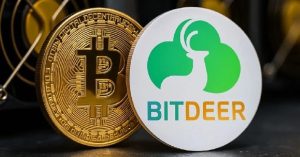The Complicated Case of Kilmar Abrego Garcia: From El Salvador to Potential Uganda Deportation
In a case that highlights the complexities and controversies of immigration enforcement under the Trump administration, Salvadoran national Kilmar Abrego Garcia finds himself at the center of an international legal battle with an unexpected twist. After being mistakenly deported to El Salvador’s high-security CECOT prison in March, then returned to the United States following court intervention, Abrego Garcia now faces potential deportation to Uganda—a country with which he has no apparent connection. This latest development came shortly after his release from pre-trial detention in Tennessee on Friday, when his attorneys received notice that he could be sent to the East African nation “no earlier than 72 hours from now,” excluding weekends. The Department of Homeland Security has confirmed this notification, though the full details remain unverified by some news outlets. The case represents a significant test of immigration enforcement policies, with the Trump administration’s aggressive deportation strategies facing legal challenges while simultaneously seeking alternative destinations for deportees.
The circuitous journey of Abrego Garcia began with a 2022 traffic stop in Tennessee that led to human smuggling charges, though he has not been convicted. Despite a 2019 immigration judge’s order barring his deportation to El Salvador based on “credible fears of persecution by local gangs,” he was erroneously sent there in March of this year. After being returned to the U.S. in June following legal challenges, he faced pre-trial detention in Tennessee until his recent release. The Trump administration has persistently characterized Abrego Garcia as having ties to the MS-13 gang and being involved in human trafficking—allegations his lawyers deny. Further complicating matters, Uganda has recently agreed to accept deportees who aren’t Ugandan citizens as part of a “third country” deportation agreement with the current administration. However, Uganda has specified conditions: individuals with criminal records and unaccompanied minors will not be accepted, and they prefer to receive deportees from African countries. Meanwhile, Costa Rica has also expressed willingness to accept Abrego Garcia, according to a letter from its Minister of Governance to the U.S. Embassy.
The political dimensions of this case are evident in the sharply contrasting statements from key officials. Secretary of Homeland Security Kristi Noem issued a blistering critique of the judge who ordered Abrego Garcia’s release, calling him “a MS-13 gang member, human trafficker, serial domestic abuser, and child predator” and labeling the decision a “complete disregard for the safety of the American people.” In stark contrast, Democratic Senator Chris Van Hollen from Maryland praised the court’s decision as upholding constitutional rights to due process, noting that Abrego Garcia “is being returned to his home and his family, where he rightly belongs.” The White House has maintained a hardline stance, with Press Secretary Karoline Leavitt describing Abrego Garcia as “an illegal alien terrorist, gang member, and human trafficker who has spent his entire life abusing innocent people.” These dramatically different characterizations highlight the deeply polarized views on immigration enforcement and due process rights for non-citizens.
What makes this case particularly noteworthy is the factual backdrop that complicates the administration’s narrative. According to court records, Abrego Garcia has no U.S. criminal record beyond minor traffic violations and had regularly checked in with immigration authorities before his removal. Before his deportation to El Salvador, he had been living with his family in Maryland and has expressed his intention to return there. His human smuggling trial is scheduled for January 27, 2027—a date far in the future that raises questions about prolonged legal limbo. A Maryland-based U.S. District Judge, Paula Xinis, ruled last month that the government must provide 72 hours’ notice before initiating deportation proceedings against Abrego Garcia, though she explicitly noted that immigration agents “may take whatever action is available to them under the law.” This judicial approach attempts to balance due process considerations with enforcement prerogatives.
The potential deportation to Uganda represents a novel approach in immigration enforcement, establishing precedent for sending migrants to countries with which they have no connection. Uganda’s agreement with the U.S. specifies conditions that seem to exclude Abrego Garcia on multiple grounds—particularly the preference for African nationals and the exclusion of those with criminal records. Similarly, Costa Rica’s offer to receive him appears contingent on the “conclusion of any criminal sentence he may serve,” though he currently faces only charges, not conviction. These third-country deportation agreements reflect a broader strategy by the Trump administration to circumvent obstacles to deportation when returns to countries of origin are problematic. The approach has raised concerns among human rights advocates about the treatment deportees might face in countries with which they have no cultural, linguistic, or familial connections.
As this case moves forward, Abrego Garcia’s attorneys will likely challenge the deportation order to Uganda, arguing that it violates both the earlier immigration judge’s ruling against deportation to El Salvador and potentially broader principles of refugee and humanitarian protection. His January trial date for human smuggling charges means this case will continue to evolve, possibly setting important precedents for immigration enforcement and due process rights. Beyond the immediate legal questions, this case illuminates broader tensions in American immigration policy: between security concerns and humanitarian obligations, between executive enforcement powers and judicial oversight, and between the characterization of migrants as threats versus individuals deserving of due process. For Abrego Garcia himself, the stakes could not be higher—facing potential deportation to a distant country where he has no connections, or the possibility of returning to a community and family in Maryland while awaiting trial on charges he disputes. His case has become emblematic of the profound human consequences of immigration enforcement policies and the complex legal landscape they navigate.














